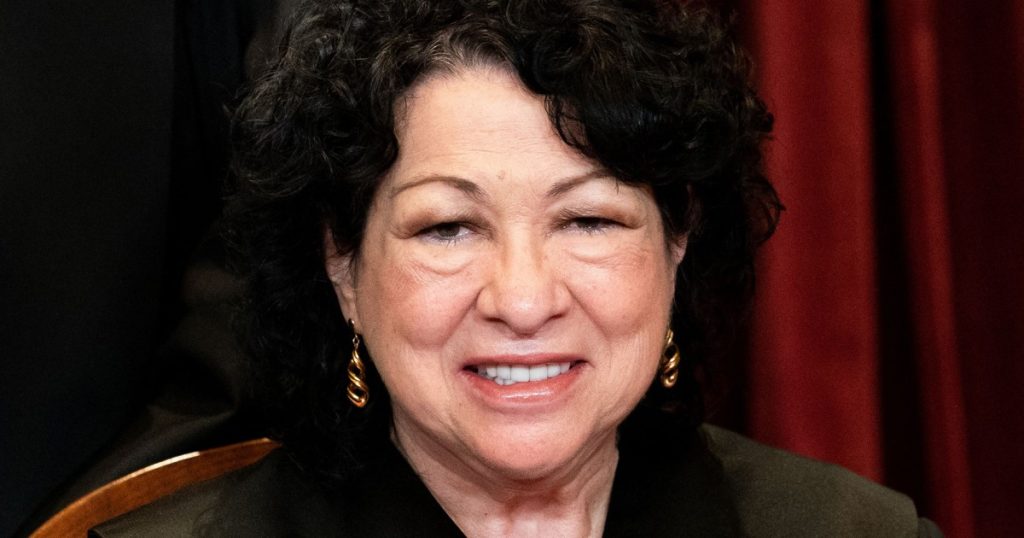The Importance of Judicial Authority in a Democratic Society
Liberal Supreme Court Justice Sonia Sotomayor addressed the critical role of the judiciary in maintaining the fabric of American democracy during a question-and-answer session at Miami Dade College in Florida. Her comments come at a time when the administration of President Donald Trump, along with some of its allies, has increasingly scrutinized and criticized recent court decisions, particularly those that have thwarted some of his more aggressive executive actions. Vice President JD Vance has been particularly vocal, raising concerns about potential defiance of court rulings and even suggesting that the nation is teetering on the brink of a constitutional crisis. Sotomayor, who is one of the three liberal justices on a conservative-majority court, emphasized the enduring nature of court decisions and the importance of respecting the rule of law, even when it is inconvenient or unpopular.
The Unwavering Nature of Court Decisions
When asked about the significance of the Constitution’s separation of powers, Sotomayor firmly stated, “Court decisions stand, whether one particular person chooses to abide by them or not.” This affirmation underscores the principle that legal rulings are not subject to the whims of individuals, no matter their position of power. She added that despite any immediate resistance, the foundation of the law remains firm, and there will always be someone who respects and upholds the court order. Sotomayor’s comments are a reminder that the judiciary serves as a crucial check on executive overreach, ensuring that all branches of government operate within the constraints of the Constitution.
The Power of Reason and Persuasion
Sotomayor acknowledged that she would not be getting too deeply into the political aspects of the issue, but she stressed the broader context of the Supreme Court’s role. She emphasized that the court’s power lies in its ability to reason and persuade, which she described as “soft power.” This form of power, she argued, is ultimately the most potent because it relies on the foundational principles of law and the Constitution. “It’s the power of reason, and that’s what most people would consider a soft power, but it’s the most powerful of all,” she said. By speaking out on this issue, Sotomayor is reinforcing the idea that the Supreme Court’s decisions are not arbitrary but are grounded in a deep understanding of the legal and constitutional landscape.
Historical Context and Cautionary Measures
Reflecting on the history of the United States, Sotomayor pointed out that the rule of law and the authority of the judiciary have been tested in the past. However, she noted that the country has generally understood the importance of these legal institutions in sustaining democracy. Sotomayor highlighted the court’s approach to proceeding cautiously, which has helped maintain public trust and confidence in the judicial system. “We’ve had moments where it’s been tested, but by and large, we have been a country who has understood that the rule of law has helped us maintain our democracy, but it’s also because the court has proceeded cautiously,” she explained. This historical perspective is crucial in understanding the current challenges and the need for continued vigilance to protect the integrity of the judiciary.
Engaging with the Public and Other Institutions
Sotomayor’s remarks also touched on the importance of the Supreme Court engaging with the broader society, including the executive and legislative branches, as well as the general public. She suggested that the court must communicate its decisions and the reasoning behind them clearly and convincingly. This transparency and clarity are essential in maintaining the public’s understanding and respect for the rule of law. By making the legal process more accessible and relatable, the court can foster a stronger sense of trust and legitimacy among all Americans. This approach aligns with the court’s ongoing efforts to educational outreach and public engagement, which have become increasingly important in the face of growing skepticism and political polarization.
A Call for Continued Commitment to the Rule of Law
In conclusion, Justice Sonia Sotomayor’s comments at Miami Dade College serve as a timely reminder of the essential role that the judiciary plays in preserving American democracy. Her emphasis on the “soft power” of reason and persuasion highlights the court’s unique ability to navigate contentious issues and maintain public trust. Despite historical and current challenges, the rule of law has been a cornerstone of the United States, and Sotomayor’s words underscore the importance of all branches of government and citizens alike continuing to uphold this vital principle. The event, hosted by Maribel Perez Wadsworth, president of the Knight Foundation, provided a platform for Sotomayor to articulate these views and engage in a meaningful dialogue about the future of the legal system in America.












